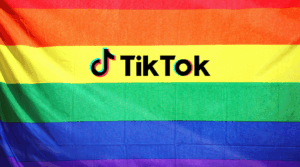On June 8th, Cole Escola made Tony Awards history as the first openly nonbinary actor to win Best Performance by an Actor for a Leading Role in a Play. Their win highlights a broader, ongoing conversation in Hollywood and beyond: should gendered acting categories still exist?
Escola’s win is significant and will, hopefully, have the effect of inspiring others. The more people feel comfortable to come out as nonbinary and explore their own identities, the more talent will appear in awards categories. Ideally, this could mean more diverse people on voting committees. Escola’s coming out as nonbinary was also moving, having been less of a standard announcement and more of a clarification.
“I’ve always felt nonbinary,” they said in a subsequent interview. It is what it is. Maybe that’s the no-nonsense energy the Tonys Nominating Committee could bring to the table next time around.
Escola’s win renews urgency to the debate: how will award bodies accommodate and celebrate gender-diverse performers? Especially with the upcoming July 2025 Emmy nominations, this will continue being a discussion.
The current landscape of gendered awards categories
Gendered awards categories are most prominent in the four major American acting awards: Emmys, Oscars, Tonys, and Golden Globes. Throughout these awards’ nearly 100-year-old histories, the biggest awards have usually been gendered. The Golden Globes, after prioritizing the Best Motion Picture awards, then build much of their hype around the awards for Best Performance by a Female Actor or Best Performance by a Male Actor.
It may be worth noting that they adopt the gender neutral “actor” but keep them separate by adding “female” and “male” in front. This could be a step toward inclusivity, or it could just be their chosen naming convention. Currently, all that’s offered to nonbinary actors is the consolation prize of choosing to get “performer” engraved in their award instead of “actor” or “actress.” This 2021 announcement came with the added ironic touch of mentioning that there are no gender requirements for submitting to a gendered category.
There’s already a precedent
Recently, some more independent organizations have made the shift toward gender neutral award categories. As of 2021, the Gotham Film & Media Institute Awards are gender neutral, replaced by Outstanding Lead Performance and Outstanding Supporting Performance. This could give the impression that because they’re one category down, that means there would be less actors receiving awards or becoming eligible to do so.
In 2023, the Independent Spirit Awards expanded categories to 10 nominees to make up for gender neutral award categories. The Dorian Awards also have gender neutral categories like “Performer of the Year” in addition to highlighting influential work from LGBTQ+ artists. Having award categories across gender isn’t impossible; it’s just, like most diverse things, moving at a glacial pace in the mainstream.
In fact, the Grammys already removed categories like “Best Female Pop Vocal Performance” and merged many others, decreasing the amount of awards from 109 to 78. The Oscars also has gone through decades of changes and adapting to the times, including expanding the limit for Best Picture nominees, as well as making diversity-focused changes to their membership.
Bella Ramsey sees both sides
Bella Ramsey in particular made news earlier this year for voicing their opinion that they don’t mind gendered categories. On the Louis Theroux podcast, they said they see value in recognizing women in a male-dominated industry. This sentiment isn’t unprecedented: there have been many instances of women being left out of a category, including a complete lack of women directors amongst 2023’s Best Picture nominees. According to the Inclusion List, there have been 36 years where no women were nominated for Best Screenplay, and only one non-white woman has ever won. Clearly, awards underrepresent both women actors and non-white actors.
Some have criticized Ramsey for defending a need for gendered awards categories. However, Ramsey has also commented on how they are uncomfortable with the current system: “I don’t want the limitations in terms of the language in the categories to be a reason that non-binary actors like me can’t be celebrated.” They don’t seem to think anyone has the right answer at the moment, and they hope the conversation continues.
More nonbinary actors weigh in
Emma Corrin, nonbinary star of A Murder At The End Of The World and winner of several Best Actress awards, also weighed in on the matter a few years ago. They said they support gender-neutral awards, but also that the worst-case scenario would be nonbinary actors’ complete exclusion – being nominated at all is better than being excluded. They stated that “visibility and representation” are key, and that it’s so important to be open as a public figure so that we can normalize all kind of experiences with gender.
Emma D’Arcy, star of House of the Dragon, and Mae Martin of Feel Good, are more nonbinary actors who have been nominated in female performer categories. While Martin had a subtle reaction, simply stating “Gender’s a construct,” D’Arcy took the opportunity to mention how their nomination was “beautifully ironic.” When trying for Hollywood success, they felt they had to present as female. Eventually that became too much, after which point the Academy nominated them for Best Actress at the Golden Globes.
While some are generally uncomfortable with the concept, many nonbinary actors feel a strong urge to call for the dismantling of the binary structure. Liv Hewson, star of Yellowjackets, stated in 2023 that they would not submitting themselves for Emmys consideration, describes it as a structural issue: “I don’t think it would be honest for me to attempt to work within this system.” Being recognized is great, but for nonbinary actors, it often comes at the cost of dysphoria and feelings of alienation.
Asia Kate Dillon’s open letter to SAG-AFTRA
Asia Kate Dillon, star of Billions, also has ongoing frustration with the lack of systemic change. In 2020, the SAG Awards’ nominating committee invited Dillon to join to vote for several gendered awards. In response, Dillon wrote an open letter to SAG-AFTRA. They advocated for removing gendered categories, stating if the Academy got rid of them, they’d join the committee. Dillon subsequently expressed frustration when they received no meaningful response. Both Dillon and nonbinary Broadway star Justin David Sullivan didn’t enter for Tonys consideration in 2022 and 2023, respectively, due to feeling ostracized by gendered award categories.
It’s not particularly surprising that there was no decent reply to Dillon’s polite and well-articulated letter. At the same time, Dillon wasn’t demanding policy change or something drastically unheard of. Would it have been so wild to at least dignify their call to action with some sort of acknowledgement?
The practical and philosophical questions
Is there any merit to separating awards by gender? Could gender-neutral categories lead to greater equity or fewer opportunities for marginalized groups? Those supporting the binary categories state that doing so protects female visibility in male-dominated industries, leading to broader representation.
On the other hand, arguments against gendered award categories view them as exclusionary. They assert that this binary incorrectly categorizes nonbinary and gender-nonconforming artists. Gendered awards categories seem to force women into their own category, which some may view as sexist and discriminatory.
For some, a separate category for women can make it seem like they have no business being considered on the same level as men. Would it not be air to women to pit them against the big men? Are they at a disadvantage that warrants a separate category, and is that actually helping them? Do we fear that men would sweep all the awards categories because we won’t nominate women enough? Is there going to be a specific amount of each gender that needs nominated? What would make it seem fair?
Furthermore, why recognize gendered talent in the face in front of the camera, but not those behind? If boosting female visibility is important, shouldn’t women in production, costuming, and cinematography also be awarded? For acting awards, is the gender so important because that’s who we see on-screen? Does this imply appearance is relevant, and if so, is this a “who looked best while acting” contest?
Industry response
Academy CEO Bill Kramer says gender-neutral awards are a conversation “for the future,” not a current priority. It’s also a lengthy process, and one that involves institutional inertia pushing up against grassroots pressure. Film Independent acting president Brenda Robinson states there are many reasons for the hold-up, including that Academy members love tradition. That’s a given, since stats show the overwhelming majority of Academy voters are white men. The voters’ makeup is overall 80% white and 65% male, with the average age being in their 60s.
Robinson also mentions that the public “loves these categories, they love to see the competition.” People definitely enjoy watching competitive awards ceremonies, but is that related to the gendered awards categories?
Lastly, Robinson states that campaign season would become “unwieldy” with too many competitors in one category. Removing gendered categories could mean moving from five to ten nominees. However, there’s certainly precedence with larger categories. The Best Picture category has ten nominees, done in an effort to include more genres, and the Grammys regularly nominate between eight and ten Albums of the Year.
But if decreasing the number of categories is the issue, this could be an opportunity to revamp them. In terms of genre, little seems to make sense about the current system. Squishing together comedies and musicals is confusing as a combined category, since some musicals are not comedies. Until 2021, an episode’s length determined whether or not it was a comedy. In the same year, the Television Academy changed the guidelines so shows would compete by genre instead of time slot. These seem like much bigger structural changes than an elimination of gendered acting categories, but what do I know?
Conclusion
This is currently an ongoing, complex discussion, and there doesn’t seem to be a one-size-fits-all solution. The visibility of nonbinary performers like Cole Escola, Bella Ramsey, and Emma D’Arcy makes the issue increasingly impossible to ignore. It’s less about each individual actor’s preference and more of an overarching diversity issue. How can we fairly represent the broad spectrum of actors? It seems unfair to simply nominate nonbinary people in an act of solidarity without any effort to enact structural change.
With the speed trans rights are moving at, it’s hard to imagine this needle will get moved very far. Although awards aren’t a legal matter, they’re about recognition and identity, which can mirror our political climate. Awards do matter in a social context, because we should recognize people for exactly who they are.
As people discover and embrace different ways of identifying, the industry must adapt to celebrate talent. Some nonbinary actors like Asia Kate Dillon remain hopeful, but the path ahead is blurry.
Check out:
Uncertain Futures: The LGBTQIA+ Community’s Continuous Battle for Equal Rights







Be First to Comment